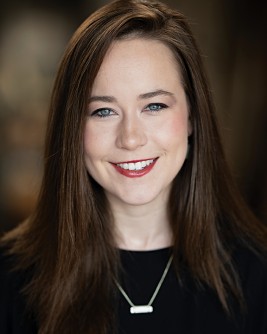
In three weeks, Denver could become the first city in the United States to decriminalize "magic," or psilocybin, mushrooms.
If Initiative 301 passes, Denver law enforcement would make policing personal psilocybin use and possession their lowest priority as long as the users are at least 21 years old.
Decriminalize Denver is behind the measure, which has garnered the endorsement of both the Denver Green Party and the Libertarian Party of Colorado.
“No person should be criminalized, they shouldn’t face severe penalties, for a substance that has such tremendous potential,” said Kevin Matthews, the Denver Psilocybin Initiative campaign director.
- Denverite Municipal Election Guide: Initiative 301
That “potential” Matthews and other psilocybin proponents point to is the evidence that mushrooms can treat depression, anxiety and other mental illnesses. Researchers have been studying the clinical properties of psilocybin mushrooms and other psychedelics, in the case of the John Hopkins Psychedelic Research Unit, for nearly two decades.
The benefits aren't just theoretical for Matthews. After he was honorably discharged from the Army and West Point for depression, Matthews said he continued to struggle until an experience with psilocybin mushrooms helped him recover.
“Mushrooms gave me a new perspective. They allowed me to see outside the box that my own mental state was creating because of my depression,” he said.
The ballot initiative would also establish a Psilocybin Mushroom Policy Review Panel, which would include law enforcement officials, city council members, supporters of the initiative and an addiction specialist. The panel would track and assess the decriminalization process.
Possessing psychedelic mushrooms is illegal federally, even though anyone can buy the spores for psilocybin or other strains legally online.

Initiative 301 doesn't decriminalize selling mushrooms, just growing, possessing and using them personally, Matthews said. He doesn't believe decriminalization would lead to a surge in criminal enterprises.
"There’s already a culture that exists here in Colorado," he said. "What we know right now is that many Denverites, many Coloradans, are turning to psilocybin as an alternative treatment for some of the mental health and addiction conditions that they’re facing."
Opponents of the ballot measure include the Centennial Institute, a conservative think tank from Colorado Christian University. Peter Droege, the marijuana and drug addiction policy fellow at the institute, said he would be less critical if Initiative 301 restricted decriminalized use to under a psychiatrist's recommendation and supervision.
"If it was done under a doctor’s supervision and prescribed in a responsible way, then that would be a different discussion. Just turning this loose on the streets is the wrong approach," Droege said.
Droege also expressed concerns about the potential negative side effects of psilocybin use. The DEA does warn that "large amounts can cause panic attacks and psychosis" and overdoses are possible.
"When people say that psilocybin mushrooms can help rewire their brains, you should take them at their word. Their hope is that it rewires their brains in a positive way. But the reality is it could also rewire their brains in a very destructive way," Droege said.
Matthews pushed back against the Centennial Institute's concerns that psilocybin poses extreme risks. He points out that the mushrooms are considered nonaddictive, and have been found to be the safer than many other recreational substances.
Between Initiative 301 garnering enough signatures to get on the Denver ballot and the state legislature considering a bill that would defelonize all drugs, Matthews said interest is high in a different kind of drug regulation.
"It seems clear to me that the Denver population and the Colorado voters are ready for a new conversation around state and government policies when it comes to drug use and drug abuse," he said.









